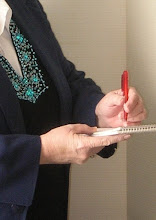Right now two locksmith licensing bills are working their way through the Florida legislative process – SB 1844 in the Senate and HB 107 in the House of Representatives.
The Senate bill is 30 pages long and the House bill is 31 pages long.
While I believe some regulation of this industry is necessary, parts of the bills seem to be drawn with a wide brush. For example:
Locksmiths can be denied a license or have a license suspended or revoked due to:
a) failure to satisfy a civil fine, administrative fine or other penalty arising out of any administrative or enforcement action brought by any government agency.
(Sound like it includes everything from parking tickets to the IRS!)
b) received any civil, criminal, or administrative adjudication in any jurisdiction
(Better not get a speeding ticket.)
c) having pending against them any criminal, administrative or enforcement proceedings in any jurisdiction.
(Let’s hope your grass doesn’t grow too high while you’re on vacation because if one of your neighbors calls code enforcement, you could lose your livelihood.)
I guess I just don’t like that word “any” since it is applied in such an all-encompassing way. It can obviously apply to a lot of infractions not related to locksmithing. Is it any wonder locksmiths and locksmith associations are against the law as it is written?
In comparison, what I do like is the way the Miami-Dade County’s 15-page Locksmith Ordinance is written. It was enacted in 1995. Miami-Dade County does use the word “any”, but limits it to crimes related to locksmithing or felonies involving moral turpitude or serious violent crimes. Here is that portion of their code:
Sec. 8A-362.
(3) Absence of any plea of nolo contendere, plea of guilt, finding of guilt or conviction within the past five (5) years, in any jurisdiction, of a felony, misdemeanor, or ordinance violation for robbery, burglary, larceny, theft, possession of stolen goods, possession of stolen car, breaking and entering, or any other crime related to locksmithing, whether or not adjudication has been withheld. Effective October 1, 2000, any plea of nolo contendere, plea of guilt, finding of guilt or withhold of adjudication shall only be considered if the applicant files an application for the first time or has not filed timely and successive renewal applications.
(4) Absence of any plea of nolo contendere, plea of guilt, finding of guilt, or conviction, in any jurisdiction, whether or not adjudication has been withheld, of any felony involving moral turpitude relating to sex, the use of a deadly weapon, homicide, violence against a law enforcement officer, or is a habitual felony offender.
No industry likes to be regulated, especially in this case when it is those outside the industry (non-locksmiths, con artists) who have created the serious issue by posing as locksmiths.
Legislators should not pull a page from the crisis management playbook of President Obama’s Chief of Staff Rahm Emanuel, who said, “You never want a serious crisis to go to waste. This crisis provides the opportunity for us to do things that you could not do before.”
To over-burden genuine hard-working blue-collar locksmiths with all-encompassing regulations is just short-sighted. When locksmiths decide to change occupations due to over-regulation, a shortage of locksmiths will occur causing increased service fees and product prices to consumers.
Editor’s note: Future blogs will reveal what else in the pending bills are making locksmiths uneasy.
Sunday, April 5, 2009
Florida legislators should tone down pending locksmith laws
Labels:
24 hour locksmith,
agency,
associations,
civil,
criminal,
Emanuel,
Florida,
government,
House,
legislative,
legislators,
licensing,
Miami-Dade,
Obama,
ordinance,
President,
Rahm,
regulation,
Senate
Subscribe to:
Post Comments (Atom)


No comments:
Post a Comment